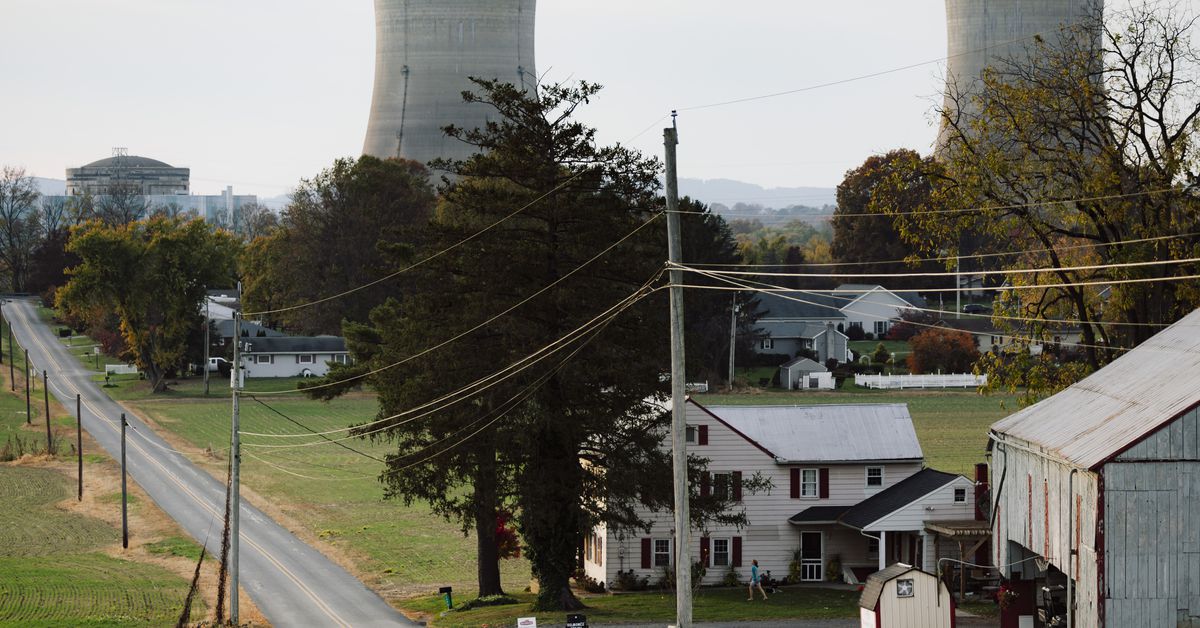The Nuclear Energy Deal: A Major Breakthrough for the Industry
A Historic Contract Signed by the GSA
The General Services Administration (GSA), which manages government buildings, has announced a significant nuclear energy contract that marks a major breakthrough for the industry. The announcement comes on the heels of several big tech companies making a flurry of nuclear energy deals last year.
The Details of the Contract
The 10-year, $840 million contract is for 10 million megawatt-hours of electricity, which the GSA says is equivalent to what’s needed for more than 1 million homes annually. The agency awarded the contract to Constellation, which operates the nation’s largest nuclear fleet and has recently announced an agreement with Microsoft to restart a nuclear reactor at Three Mile Island.
The Significance of Nuclear Energy in the Contract
Nuclear energy makes up a significant portion of the GSA deal, about 4 million megawatt-hours, according to Constellation spokesperson Paul Adams. This is not surprising given that Silicon Valley is increasingly turning to nuclear energy to satiate electricity demand from AI data centers.
The Federal Government’s Role in Supporting Nuclear Energy
As the nation’s single largest energy consumer, the federal government plays a crucial role in supporting the nuclear industry. The GSA contract is a big boon for the industry, and it demonstrates how things have changed in recent years.
A Shift Towards Sustainable Energy Sources
According to Constellation president and CEO Joe Dominguez, "This agreement is another powerful example of how things have changed." Frustratingly, nuclear energy was excluded from many corporate and government sustainable energy procurements. Not anymore. This agreement shows that the United States government joins Microsoft and other entities in supporting continued investment in reliable nuclear energy.
Constellation’s Commitment to Sustainable Energy
Constellation generates 10 percent of the nation’s carbon pollution-free energy. A majority of its output is nuclear energy, but it also produces hydro, wind, and solar power. It also generates electricity from gas-fired power plants, although the company has set a goal of reaching 100 percent carbon-free electricity by 2040 compared to close to 90 percent today.
The Breakdown of Electricity Sources
Constellation and the GSA declined to answer questions about how much of the electricity included in the contract will come from each source aside from nuclear power plants. However, it’s worth noting that the contract allows Constellation to extend licenses for existing nuclear power plants as well as "invest in new equipment and technology" that should result in 135 megawatts of additional capacity.
The Benefits of the Contract
The GSA has framed the contract as a way to lock in more affordable prices as data centers drive up electricity demand and increase competition for limited clean energy sources. By signing this contract, federal agencies will have budgetary stability and protections from future price increases by keeping their electricity costs fixed for 10 years.
A Boost to the Domestic Nuclear Industry
The GSA is also framing the contract as a way to bolster the domestic nuclear industry. The deal extends to 13 other agencies, including the departments of Veterans Affairs and Transportation as well as the Federal Bureau of Prisons, the National Park Service, the Social Security Administration, and the US Mint.
Other Major Players in Nuclear Energy Deals
Several major tech companies have also made splashy nuclear energy deals over the past year. In September of last year, Microsoft and Constellation announced a plan to restart a shuttered reactor at Three Mile Island in Pennsylvania, the site of the worst nuclear energy accident in US history.
The Biden Administration’s Plan for Nuclear Energy
The Biden administration has made nuclear energy a key part of its plan to transition the US away from fossil fuels to energy sources that don’t cause climate change. Last October, the Department of Energy announced a $1.52 billion loan to help restart a retired nuclear generating station in Covert Township, Michigan.
Conclusion
In conclusion, the GSA contract marks a significant breakthrough for the nuclear industry. With this deal, Constellation will be able to extend licenses for existing nuclear power plants and invest in new equipment and technology that should result in 135 megawatts of additional capacity. The federal government’s support for nuclear energy is a crucial step towards reducing our reliance on fossil fuels and transitioning to sustainable energy sources.
The Future of Nuclear Energy
As the world continues to shift towards renewable energy sources, it’s clear that nuclear energy will play an increasingly important role in meeting electricity demand. With major tech companies like Microsoft and Google investing heavily in nuclear energy, it’s likely that we’ll see more deals like this in the coming years.
The Benefits of Nuclear Energy
Nuclear energy has several benefits that make it an attractive option for governments and corporations looking to reduce their carbon footprint. Some of these benefits include:
- Reliability: Nuclear power plants can operate at full capacity regardless of weather conditions, making them a reliable source of electricity.
- Scalability: Nuclear power plants can be built in various sizes, from small-scale facilities to large commercial reactors.
- Low Operating Costs: Once a nuclear power plant is built, the operating costs are relatively low compared to other forms of energy production.
Challenges Facing the Nuclear Industry
Despite its benefits, the nuclear industry faces several challenges that must be addressed if it’s going to continue to grow. Some of these challenges include:
- Public Perception: The public’s perception of nuclear energy is often negative due to concerns about safety and waste disposal.
- Regulatory Framework: The regulatory framework for nuclear energy can be complex and time-consuming, making it difficult to build new facilities.
- Waste Disposal: Nuclear power plants produce radioactive waste that must be disposed of safely and securely.
Conclusion
In conclusion, the GSA contract marks a significant breakthrough for the nuclear industry. With this deal, Constellation will be able to extend licenses for existing nuclear power plants and invest in new equipment and technology that should result in 135 megawatts of additional capacity. The federal government’s support for nuclear energy is a crucial step towards reducing our reliance on fossil fuels and transitioning to sustainable energy sources.
References
- "Nuclear Energy: A Guide to the Industry." World Nuclear Association.
- "The Future of Nuclear Energy." International Atomic Energy Agency.
- "Nuclear Power in the United States." U.S. Energy Information Administration.



